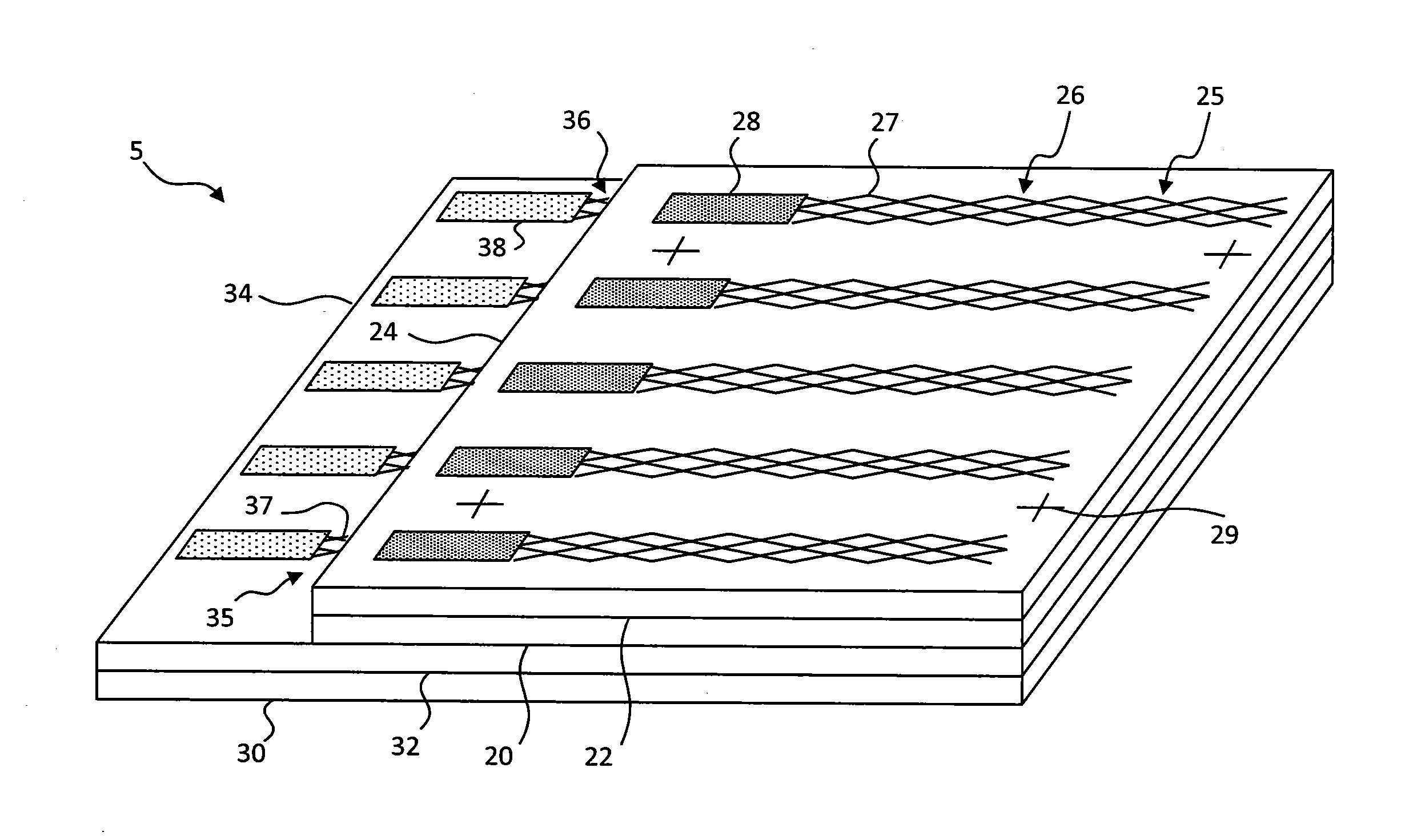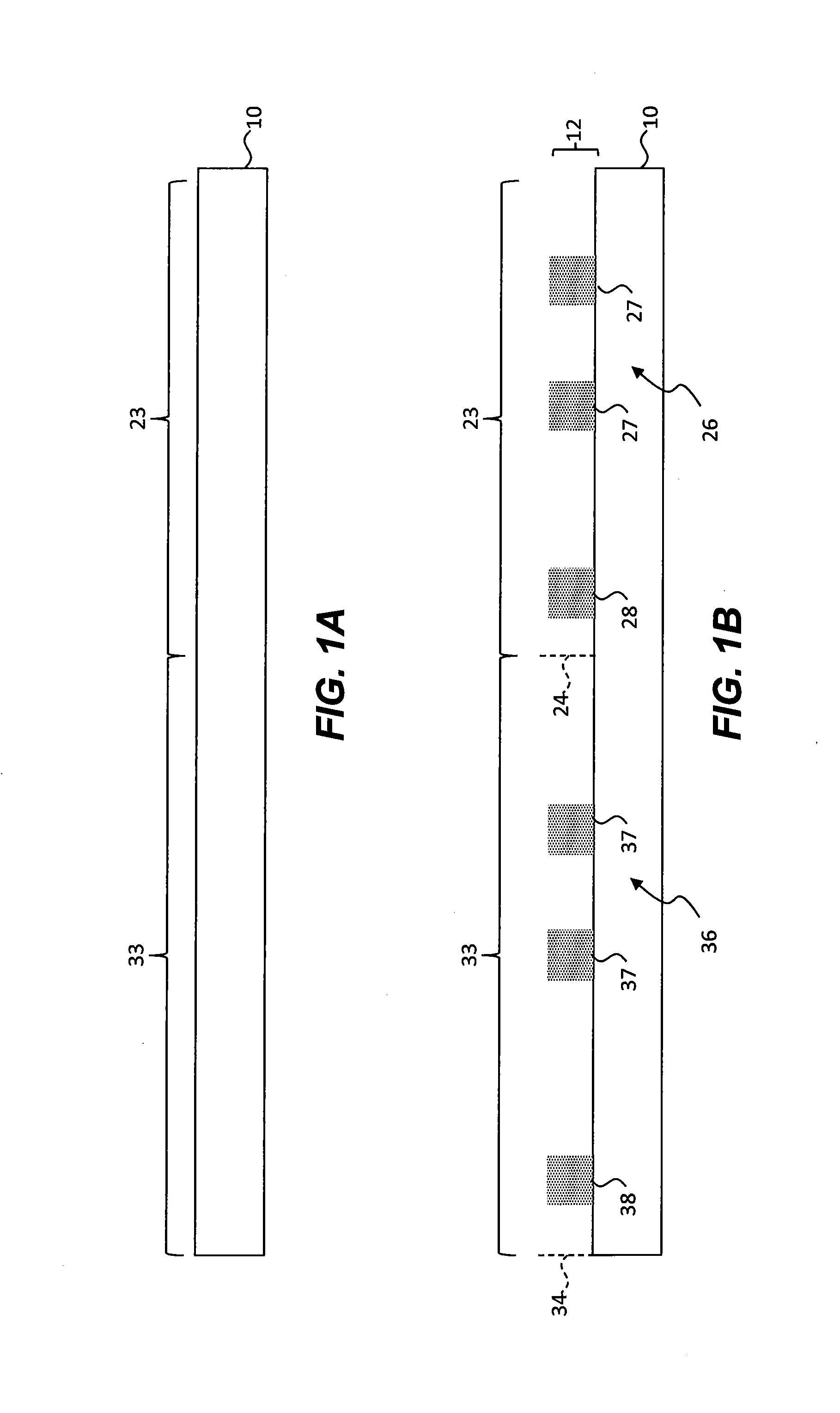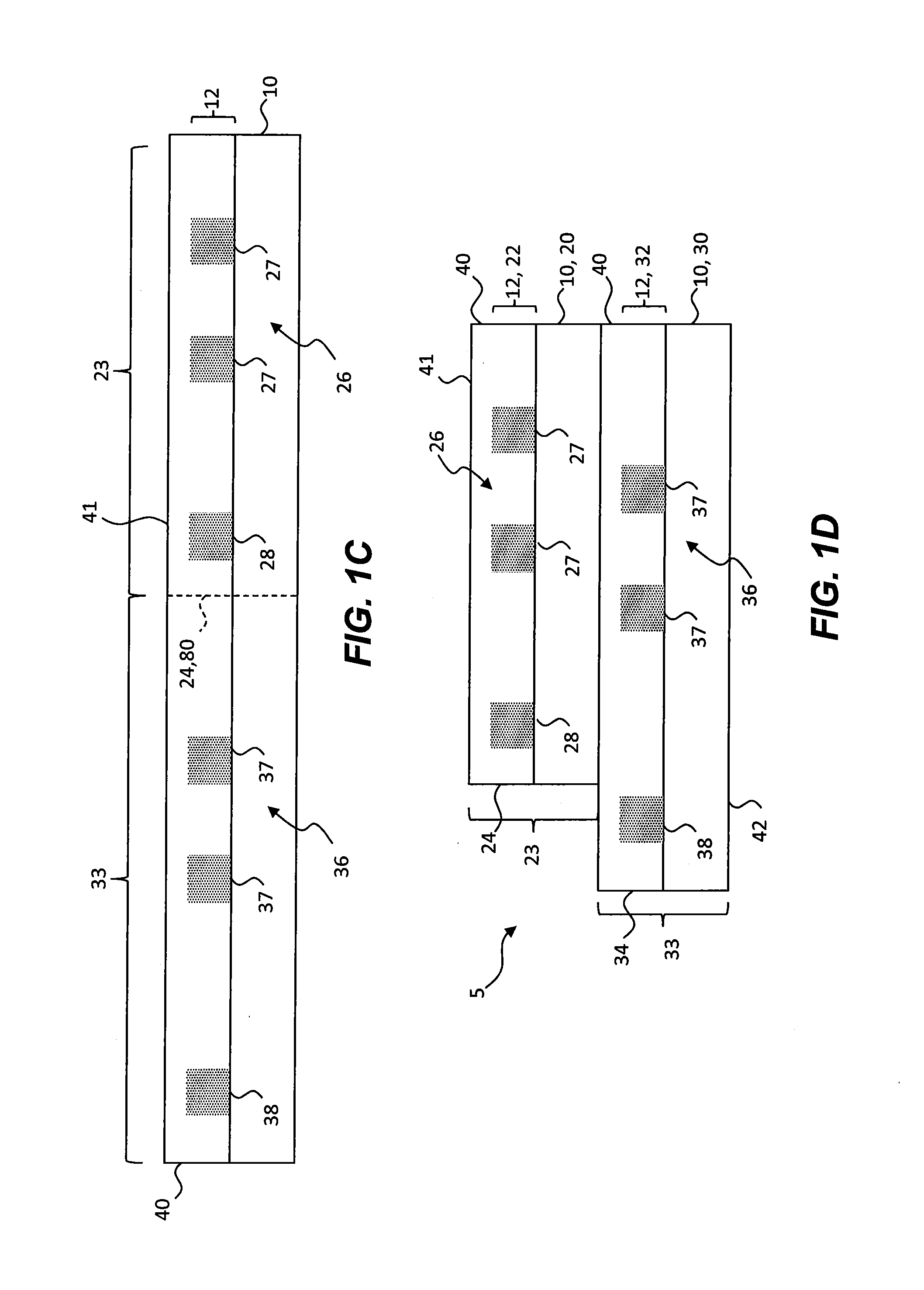Making multi-layer micro-wire structure
a micro-wire and structure technology, applied in the field of substrate structures, can solve the problems of limited transparency and conductivity, tendency to crack under mechanical or environmental stress, and increasing cost of transparent conductive metal oxides, and achieve the effect of fewer manufacturing steps
- Summary
- Abstract
- Description
- Claims
- Application Information
AI Technical Summary
Benefits of technology
Problems solved by technology
Method used
Image
Examples
Embodiment Construction
[0039]The present invention is directed toward multi-layer and multi-area micro-wire structures and methods of making such structures with improved efficiency and reduced cost. In an embodiment, the multi-layer micro-wire structure is used in a capacitive touch screen or in conjunction with a display device.
[0040]Referring to the cross sections of FIGS. 1A-1D and to the flow diagram of FIG. 2, in an embodiment of the present invention a method of making a multi-layer micro-wire structure 5 (FIG. 1D) includes providing a substrate 10 having first and second distinct and separated areas 23, 33 (FIG. 1A) in step 200. Referring to FIG. 1B, a micro-wire layer 12 is located in contact with the substrate 10 in step 210. The micro-wire layer 12 has a first layer edge 24 and a second layer edge 34 different from the first layer edge 24. The micro-wire layer 12 also has first and second distinct and separated areas 23, 33 spatially corresponding to the first and second distinct and separated ...
PUM
| Property | Measurement | Unit |
|---|---|---|
| transparency | aaaaa | aaaaa |
| transparency | aaaaa | aaaaa |
| transparency | aaaaa | aaaaa |
Abstract
Description
Claims
Application Information
 Login to View More
Login to View More - R&D
- Intellectual Property
- Life Sciences
- Materials
- Tech Scout
- Unparalleled Data Quality
- Higher Quality Content
- 60% Fewer Hallucinations
Browse by: Latest US Patents, China's latest patents, Technical Efficacy Thesaurus, Application Domain, Technology Topic, Popular Technical Reports.
© 2025 PatSnap. All rights reserved.Legal|Privacy policy|Modern Slavery Act Transparency Statement|Sitemap|About US| Contact US: help@patsnap.com



